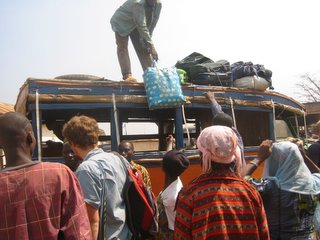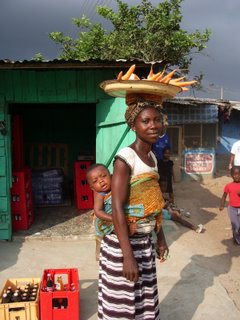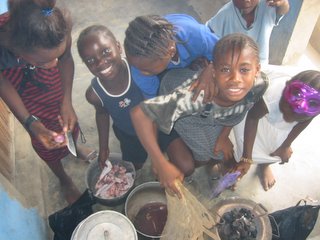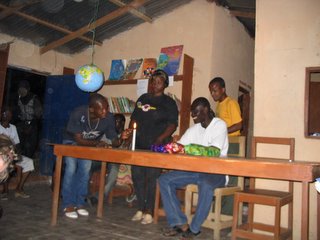slow boat to...
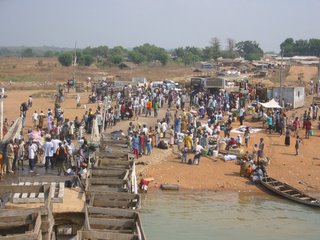
We started out our travels on a cargo ship up Lake Volta to head to the North of the country. It seemed like a great idea at the time. A boat trip up the river of an African country has a certain inherent adventurous appeal, and the guidebook's description of the trip as for only the more “hardened” travelers just kind of entices you to prove your mettle on the backpacker battlefield. But the enjoyment of watching the countryside roll by from the side of your boat wears off after a few hours. And then you have another 30 hours on a crowded cargo ship with nothing to do and nowhere to sleep on a boat that is moving at a pace that I felt reasonable sure I could out-swim. And I’m a horrible swimmer. The boat crammed people on three small decks and when nighttime came people slept slumped over tables or curled up in the most contortionist positions. We battled, and lost, some Ghanaian soldiers for the few old mattresses that were scattered about, and half-joked that we would have shown them more deference if Ghana were engaged in any real combat at the moment. There was one man who managed to balance himself on the 3 inches that the top of a bench seat back provided. This is an impressive feat viewed at a distance, but as luck would have it, I was parked on the seat of the bench below him and the prospect of him losing his balance and falling flat on top of me kept me from any substantially sound sleep. But it was really more the monotony than the discomfort and the feeling that we could be seeing more of the country if we could only get off the damn boat. We did manage to befriend some of the crew and the engineer actually brought us down to see the engine room, which did not actually inspire much confidence and gave me images of sinking boats to add to my images of strange men falling on me in my sleep. When we got to our destination, we discovered that after 32 hours, we had traveled a mere 180 miles further on our journey.
